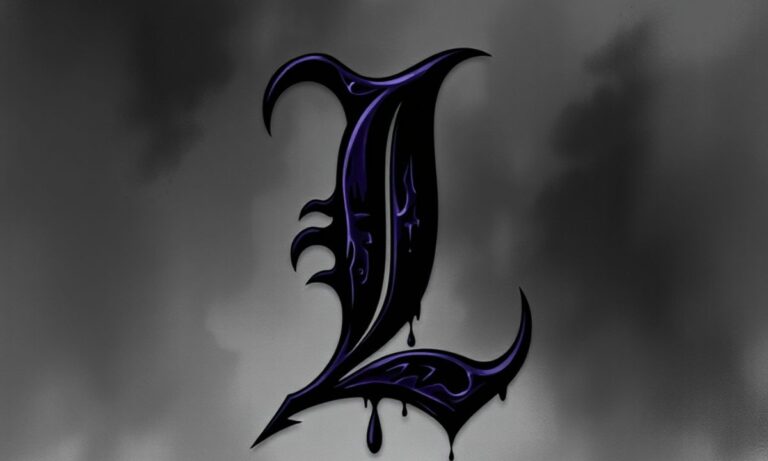The letter L offers a rich selection of terms that describe unpleasant traits, feelings, and situations. From “loathsome” to “lethargy,” these words can help you express yourself more precisely when talking about negative concepts.
This comprehensive guide categorizes hundreds of L-words to help writers, students, and language enthusiasts find exactly what they need for more powerful descriptive language.
READ MORE: https://fashiongravity.co.uk/negative-words-that-begin-with-the-letter-j/
Negative Words That Start With L To Describe People Or Things
When you need to describe someone’s unpleasant characteristics or negative situations, having the right word can make your writing more impactful. The letter L provides numerous options for describing negative traits in people and things.
“Loathsome” perfectly captures something or someone repulsive and disgusting. For example, “Cancer is a loathsome disease which takes many lives in a painful way.” This word works effectively for people too: “The politician’s corrupt actions showed his loathsome lack of morals.”
“Licentious” refers to unrestrained sexual behavior lacking moral restraint. A licentious person takes liberties regarding sexual acts without concern for ethics. When describing a place, you might say, “The brothel was a den of licentious behavior.”
“Lazy” describes someone unwilling to work or use energy. “Lukewarm” indicates a lack of enthusiasm or halfhearted effort. “Lousy” refers to something of poor quality or badly done.
“Lethargic” describes someone sluggish and lacking energy. “Limited” indicates restrictions or boundaries that constrain potential. “Lonely” describes someone isolated from others, experiencing social emptiness.
Additional words include “lax” (not strict enough), “lame” (weak and unconvincing), and “ludicrous” (absurd or ridiculous). “Languid” describes someone lacking energy or interest, while “long-winded” refers to someone who speaks for too long.
- Lazy
- Liar
- Lethargic
- Lamentable
- Lousy
- Lascivious
- Languid
- Lurid
- Loathsome
- Lackluster
- Lonesome
- Lousy
- Lethal
- Lamenting
- Larcenous
- Languorous
- Loutish
- Lascivious
- Languorous
- Lousy
- Lethargic
- Lamentable
- Lecherous
- Lopsided
- Lumpy
- Loathsome
- Languid
- Lethargy
- Lacerating
- Lurid
- Lethal
- Lopsided
- Languorous
- Lamenting
- Lonesome
- Lethargic
- Larcenous
- Lackadaisical
- Languorous
- Loutish
- Lamentable
- Lethargic
- Lousy
- Liar
- Lonesome
- Lamenting
- Lecherous
- Lackluster
- Lethargy
- Lopsided
- Languid
- Lamentable
- Lurid
- Lacerating
- Languorous
- Larcenous
- Loathsome
- Loutish
- Lackadaisical
- Lamenting
- Lethal
- Lumpy
- Lamentable
- Lazy
- Liar
- Languorous
- Lethargic
- Lethargy
- Lascivious
- Lethal
- Lamenting
- Lonesome
- Larcenous
- Lousy
- Lanky
- Loutish
- Lackluster
- Lamentable
- Languorous
- Lethargic
- Lascivious
- Lethargy
- Lopsided
- Loathsome
- Languid
- Lacerating
- Lurid
- Liar
- Lazy
- Lonesome
- Lamenting
- Lackadaisical
- Lethal
- Larcenous
- Loutish
- Languorous
- Lackluster
- Lamentable
- Lethargic
- Lous
Negative Adverbs That Start With The Letter L
Adverbs modify verbs, adjectives, or other adverbs, often ending in “-ly” and providing additional information about actions or descriptions. Negative L adverbs help convey how unpleasant actions are performed.
“Laxly” describes performing something without strictness or attention. For example, “The police officers enforced the law laxly.” This indicates carelessness and insufficient diligence.
“Lumberingly” depicts heavy, awkward movement: “The courier brought the heavy parcels lumberingly to the door.” It creates a vivid image of slow, clumsy motion.
“Lifelessly” describes actions done without energy or enthusiasm. “Listlessly” indicates performing something without interest or enthusiasm. “Lethally” means in a deadly or extremely harmful way.
“Loathingly” expresses intense disgust or hatred in actions. “Languidly” describes movements done with little energy or enthusiasm. “Lazily” indicates performing actions without proper effort.
“Lustfully” describes acting with strong sexual desire, often inappropriately. “Lugubriously” means acting in an exaggeratedly gloomy or sorrowful manner.
Additional adverbs include “lackadaisically” (without interest or care), “lamely” (in a weak or unconvincing way), and “laughably” (in a manner deserving ridicule).
- Lazily
- Lamentably
- Lethargically
- Loathsomely
- Lousily
- Languidly
- Larcenously
- Lamentingly
- Lasciviously
- Laceratingly
- Lethally
- Lackadaisically
- Loutishly
- Lamentably
- Lurkingly
- Languorously
- Lopsidedly
- Lethargically
- Lecherously
- Languidly
- Luridly
- Lousily
- Lonesomely
- Languorously
- Lethargically
- Lamentingly
- Lopsidedly
- Laceratingly
- Larcenously
- Lamentably
- Lazily
- Loathsomely
- Lacklusterly
- Languidly
- Loutishly
- Languorously
- Lamentably
- Lethargically
- Larcenously
- Lamenting
- Lurkingly
- Lethally
- Lousily
- Lamentably
- Languidly
- Lurkingly
- Laceratingly
- Lethargically
- Loathsomely
- Lackadaisically
- Lamenting
- Lethargically
- Languorously
- Lousy
- Lamentably
- Larcenously
- Loutishly
- Lazily
- Languidly
- Lurkingly
- Laceratingly
- Lamentably
- Lethargically
- Lousily
- Lamentingly
- Languorously
- Lopsidedly
- Looathsomely
- Lethally
- Lamenting
- Languidly
- Larcenously
- Lamentably
- Lousy
- Languidly
- Lurkingly
- Laceratingly
- Lazily
- Lamentably
- Lethargically
- Lousily
- Lamenting
- Languorously
- Loutishly
- Lethargically
- Loathsomely
- Lacklusterly
- Lamentably
- Larcenously
- Languorously
- Lamenting
- Lousy
- Lethargically
- Languidly
- Lazily
- Laceratingly
- Loutishly
- Lamentably
- Lethally
- Lurkingl
Obscure Words That Start With L
Expanding your vocabulary with obscure words enhances your communication skills and writing. These less commonly used L words can add sophistication and precision to your expression.
“Laconic” describes using very few words in speech or writing, often with an undertone of rudeness or indifference. Though brevity can be valued, laconic communication suggests a lack of caring.
“Lugubrious” refers to someone looking or sounding excessively sad or mournful. A person experiencing difficulties may have a lugubrious expression due to loss, relationship problems, or financial challenges.
“Labile” describes something unstable or likely to change. “Lachrymose” means tearful or tending to cry frequently. “Legerdemain” refers to skillful trickery or deception.
“Lackluster” describes something lacking brightness, vitality, or enthusiasm. “Lethargy” indicates a state of sluggishness and lack of energy. “Libertine” refers to a person who lives an unrestrained, immoral life.
“Lexicon” is a vocabulary of a person, language, or subject. “Libel” means a published false statement damaging to a person’s reputation. “Loquacious” describes someone who talks a lot, sometimes excessively.
- Lacerate
- Lachrymose
- Laggard
- Languor
- Lank
- Lascivious
- Lethargy
- Lethiferous
- Lignify
- Limn
- Limerence
- Lissome
- Lithe
- Lollapalooza
- Lolling
- Loth
- Lucent
- Luminous
- Lurid
- Lustrum
- Lychgate
- Lyophilize
- Lymphatic
- Lymphocyte
- Languid
- Lethargic
- Lignocellulose
- Lark
- Lattice
- Laceration
- Lamprophony
- Languorous
- Lecherous
- Lectern
- Leeward
- Lethargic
- Ligamentous
- Limerick
- Listless
- Luridness
- Lothario
- Latticework
- Lamentation
- Legato
- Lollop
- Leverage
- Luminescence
- Lacuna
- Loquacious
- Languorousness
- Lolling
- Languidness
- Lollapalooza
- Limber
- Languidly
- Lustrous
- Luekos
- Languish
- Lucubration
- Lacerative
- Languishment
- Leptosome
- Lethiferously
- Lymphadenopathy
- Lethargically
- Luminousness
- Languidly
- Lardaceous
- Lollard
- Lazer
- Lentic
- Languorously
- Liripipe
- Lyricism
- Limerick
- Lobular
- Lymphokine
- Lickspittle
- Lethiferousness
- Lyceum
- Lunatic
- Languorist
- Lenticel
- Lethargically
- Latticework
- Languorousness
- Lollapalooza
- Languished
- Lethargy
- Lurking
- Lichgate
- Lupercalia
- Languishing
- Lathery
- Lymphoblast
Unusual Words That Begin With L
Unusual words enrich our knowledge of history, geography, and specialized subjects. These odd L words may not fit neatly into categories but expand our linguistic understanding.
“Laconicum” refers to a part of ancient Roman baths specifically designed for sweating, similar to a modern sauna. This historical term connects us to ancient bathing practices.
“Lacustrine” relates to lakes or lake systems. A lacustrine wetland is an open area without vegetation, such as lakes, reservoirs, and farm dams.
“Lampadedromy” was an ancient Greek torch race where runners passed torches like modern relay races. “Lambrequin” refers to a short decorative drapery for a shelf or window.
“Lagniappe” means a small gift given to a customer by a merchant at the time of purchase. “Laniferous” describes something that produces or bears wool. “Lapicide” refers to a stonecutter.
“Latebricole” describes an animal that hides in holes. “Lemniscate” is the mathematical symbol for infinity. “Lithophagous” describes organisms that eat or bore into stone.
Additional unusual words include “laetificate” “lagotic”, and “lamelliform”
- Labyrinthine
- Lacerate
- Lackadaisical
- Lamentation
- Languid
- Languor
- Larcenous
- Lethargy
- Lethiferous
- Lethargic
- Limerence
- Limn
- Limerick
- Lissome
- Litigious
- Lollapalooza
- Lolling
- Loquacious
- Luminous
- Lurid
- Loth
- Languorous
- Languidly
- Luminescence
- Lacuna
- Laceration
- Languishment
- Lollard
- Lymphatic
- Lyophilize
- Languorously
- Lullaby
- Lunatic
- Lethargically
- Limerick
- Loquacity
- Lacerative
- Lissomely
- Languorousness
- Loutish
- Lattice
- Lecherous
- Lurking
- Lethiferously
- Lymphocyte
- Litany
- Luridness
- Lollop
- Legato
- Luminary
- Lolling
- Lamentably
- Larceny
- Lacquer
- Languorist
- Lout
- Lymphokine
- Laver
- Lollard
- Languish
- Leeward
- Limerick
- Languorous
- Lollapalooza
- Lethargic
- Lament
- Lascivious
- Lymphoblast
- Lichgate
- Luminousness
- Languidness
- Lingo
- Lymphadenopathy
- Lymphatic
- Lyrical
- Labile
- Larcenist
- Lacerative
- Lustrous
- Ligamentous
- Lolling
- Languidly
- Languorously
- Lacerate
- Loll
- Lickspittle
- Lethargically
- Lucubration
- Laconic
- Lexicon
- Languorist
- Languorously
- Lethal
- Languorousness
- Lamenting
- Luster
- Luridly
- Languished
- Lamentable
- Leverage
- Lollop
- Lest
- Latticework
- Lichen
- Languidness
- Lurkingly
- Lecher
- Lollard
- Lollapalooza
- Languor
- Lethiferously
- Languishing
- Limerick
- Laced
- Languorist
- Lark
- Latch
- Lyrically
- Lamentingly
- Lethargy
- Lacquered
- Languorous
- Languidly
- Loutishly
- Loper
- Lattice
- Lolling
- Languorist
- Lollapalooza
- Lamentable
- Larcenist
- Lull
- Lurkingly
- Lamentation
- Languidness
Halloween Words That Start With The Letter L
Halloween vocabulary adds spooky flavor to the season’s festivities. These L words connect to the eerie themes of this popular holiday.
“Lantern” plays a special role in Halloween traditions, particularly the jack-o’-lantern that decorates entranceways. This iconic Halloween symbol originated from an Irish legend about Stingy Jack, who was doomed to wander with only a coal in a turnip for light.
Irish immigrants brought this myth to North America, where pumpkins became the preferred lantern medium. Today, carved pumpkins with glowing faces remain one of Halloween’s most recognizable symbols.
“Lycanthrope” refers to a werewolf or a person who believes they can transform into a wolf. “Lurking” describes hiding menacingly, waiting to attack or surprise.
“Lightening” creates eerie illumination during stormy Halloween nights. “Leotard” is worn as part of many Halloween costumes, particularly for performers or fictional characters.
These Halloween L words enhance the spooky atmosphere and contribute to the holiday’s mysterious allure. They connect to traditional elements of fear, transformation, and the supernatural.
- Lantern
- Lurking
- Lich
- Labyrinth
- Lament
- Lurker
- Levitation
- Lycanthrope
- Lollipop (as in Halloween treats)
- Lethal
Sad And Depressing Words That Begin With L
Words that express sadness and depression help us communicate difficult emotions and understand our feelings better. These emotional L words describe various negative mental states.
“Loneliness” is a widespread issue affecting many people’s well-being. It can stem from different circumstances: breaking up with a partner, limited mobility for older people, or lacking social connections despite being around others.
If experiencing loneliness, consider reaching out to medical practitioners, therapists, or online resources for guidance. No one should suffer from loneliness without support.
“Lamentable” describes something deserving sorrow or regret. “Let down” refers to feeling disappointed when expectations aren’t met. “Lost” describes feeling disoriented or without direction in life.
“Lacerated” means emotionally wounded or torn. “Languishing” indicates suffering from prolonged unhappiness or declining health. “Low spirits” describes a state of sadness or depression.
Additional sad words include “lovesick” , “luckless”, and “long-faced”
- Lament
- Lethargy
- Loneliness
- Loss
- Languish
- Lamentation
- Lonesome
- Lacerate
- Lamenting
- Lethargic
- Languid
- Lurking
- Lamentable
- Lamentingly
- Languorous
- Lopsided
- Languishment
- Loathe
- Lackluster
- Leaden
- Lethal
- Languor
Negative L Adjectives
Adjectives describe people, places, and things, providing specific characteristics that help readers visualize subjects. Negative L adjectives characterize unpleasant traits and situations.
“Lethargic” describes someone sluggish and uncaring, like a “couch potato” with zero energy who only wants to watch TV or scroll through social media. Extended periods of lethargy can lead to more inactivity.
To combat lethargy, resist the impulse to remain inactive for long periods. With streaming services making it easy to recline and binge-watch shows, it’s important to get moving for better energy and positivity.
“Larcenous” relates to theft or the impulse to steal. “Leathery” describes something tough, dry, and wrinkled like old leather. “Leering” indicates looking at someone in an unpleasantly suggestive way.
“Libelous” describes false statements that damage someone’s reputation. “Libidinous” refers to someone showing excessive sexual desire. “Loutish” describes someone rude and lacking sensitivity.
Additional negative adjectives include “light-fingered” (inclined to steal), “loveless” (without love or affection), and “lumpen” (uninterested in revolutionary ideas or social change).
- Lazy
- Lethargic
- Lamentable
- Languid
- Loathsome
- Lackluster
- Larcenous
- Loutish
- Lousy
- Languorous
- Lethal
- Lamenting
- Lopsided
- Lacerating
- Lascivious
- Lonesome
- Lurid
- Lackadaisical
- Lecherous
- Lethiferous
- Languishing
- Loath
- Lifeless
- Languidly
- Lethargically
- Languorousness
- Larcenist
- Lousy
- Lamentingly
- Lacerative
- Lothario
- Lurking
- Leaden
- Languorously
- Lacklusterly
More Negative Words That Start With L
The letter L contains so many negative words that this additional section provides even more options for your vocabulary development and precise expression.
“Litany” refers to a long, tedious list of complaints or problems. “Lope” means to run with a long, bounding stride—often used negatively to describe fleeing or escaping. “Loimic” relates to pestilence or plague.
“Lounge” can describe lazily reclining or wasting time in idleness. “Lumber” means to move in a heavy, clumsy way. “Ligneous” describes something wooden or resembling wood in texture.
“Litholatry” refers to the worship of stones or idols. “Longiloquence” means using many words, especially unnecessarily. “Loquence” indicates excessive talkativeness or verbosity.
“Loess” is a type of soil that can cause agricultural problems. “Logorrhea” refers to excessive, often incoherent talkativeness. “Lithomancy” is divination using stones, often associated with superstition.
“Locum” refers to a temporary substitute, often viewed negatively in professional contexts. “Lobcock” is an old term for a dull, stupid person. “Lochetic” relates to childbirth or lying-in.
- Lack
- Lament
- Lethargy
- Lacerate
- Languid
- Loathsome
- Lamentable
- Larcenous
- Loutish
- Lousy
- Languorous
- Lecherous
- Lethal
- Lamenting
- Lopsided
- Lacerating
- Languish
- Lonesome
- Lethargic
- Lurking
- Lackluster
- Lethiferous
- Languishing
- Lamentation
- Languor
- Lickspittle
- Lame
- Lethargically
- Lamentably
- Languidly
- Lacerative
- Lethalness
- Lackadaisical
- Languorously
- Loner
- Lethargically
- Lurkingly
- Lamentingly
- Laceration
- Languorousness
- Larceny
- Lolling
- Lurching
- Lethal
- Lamentable
- Lurking
- Languidness
- Lethiferously
- Lollard
- Lethargy-inducing
- Languish
- Leaky
- Lopsidedness
- Lamentation-filled
- Languorist
- Lollop
- Lurker
- Lacerative
- Lonesomeness
- Lacklusterly
- Leaden
- Languidly
- Laceratingly
- Languorous
- Lout
- Lamenter
- Lackadaisically
- Languishingly
- Lickspittle
- Lonesome
- Lethargy-inducing
- Lethargically
- Languishing
- Lurk
- Languorously
- Lamented
- Lamentably
- Languorousness
- Lacerative
- Lurkingly
- Lopsidedly
- Languidness
- Lax
- Lamenting
- Lamentations
- Lethal
- Languorous
- Lethargically
- Lurch
- Lethargy
- Loll
- Lackluster
- Lamenting
- Languidly
- Liar
FAQ’s
What are the most common negative L words used in everyday language?
The most common negative L words include lazy, lousy, lame, lonely, and lethargic.
How can learning negative L words improve my writing?
Learning negative L words enhances descriptive language and helps convey emotions and situations more precisely.
Are there positive L words that have negative meanings in certain contexts?
Words like “liberal” or “light” can take on negative connotations depending on context and perspective.
What’s the difference between “loathsome” and “loathful”?
“Loathsome” describes something disgusting or repulsive, while “loathful” relates to feeling hatred or disgust.
How can I remember unusual negative L words more effectively?
Associate unusual words with vivid mental images or use them regularly in sentences for better retention
Conclusion
Negative L words offer powerful tools for precise expression in both writing and speaking. These words help us accurately describe unpleasant traits, situations, and emotions with specificity and impact.
By incorporating these terms into your vocabulary, you can communicate more effectively and add depth to your descriptive language.
Using these words thoughtfully enhances your ability to convey negative concepts clearly.
Whether you’re writing creatively, academically, or communicating everyday feelings, having access to this vocabulary empowers you to express yourself with greater precision and nuance.
Expand your linguistic toolkit with these negative L words to become a more effective communicator.
.

I’m Irfan, an experienced SEO content and SEO specialist with 2 years of expertise, currently contributing to Al Jazeera News Website.





